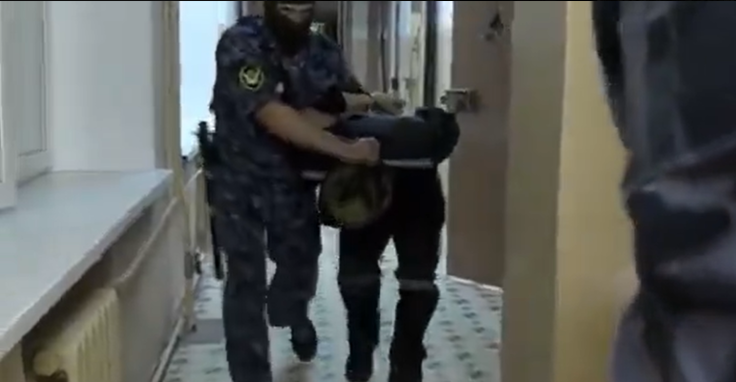
After years of tense relationships between Venezuela and Colombia, personified initially by Hugo Chávez and Álvaro Uribe and continued later on by Nicolás Maduro and Ivan Duque, both countries finally seemed to find common ground when Gustavo Petro became Colombia's first ever leftist president.
However, relations between the two countries have soured as of late, as Petro, along with Brazilian president Lula da Silva, have become essential mediators in the crisis that has engulfed Venezuela since Maduro claimed to have won reelection on July 28, a result that's been questioned by the country's opposition and a major part of the international community, including the U.S. and the EU.
Both Petro and Lula have repeatedly stated that they will only recognize electoral results in Venezuela once "disaggregated and verifiable data is published" and have even gone as far as to propose an electoral redo, something that both the Venezuelan government and the opposition have rejected.
Petro has a lot riding on the outcome of the Venezuelan crisis as Colombia currently houses almost three million Venezuelans, by far the largest number in the world. Furthermore, recent polls indicate that thousands more are considering migrating if the situation remains the same and some NGOs estimate that there are already up to 160 Venezuelans crossing the border every day.
In this context, a bombshell story by The New York Times promises to put an even bigger strain in Colombian-Venezuelan relations, amplifying the conflict to an even broader geopolitical sphere.
The report states that two Colombian soldiers who had fought for Ukraine are now under arrest in Moscow after the Maduro regime allegedly extradited them to Russia. The soldiers in question, José Medina and Alejandro Ante, were arrested upon their arrival in Moscow after they had disappeared last month in Venezuela, a country known for its close ties with Russia.
The Colombian fighters were shown in a Russian state media video on Friday, where they were interrogated by Russia's secret police about their involvement in the Ukrainian Armed Forces. Both men had served in Ukraine for eight to ten months. On Thursday, a Moscow court ordered their detention on charges of being mercenaries, a violation of both Russian and international law.
Relatives of the two Colombian servicemen confirmed to The New York Times that the men seen in the video being hauled through a corridor by security officers and later interrogated were Mr. Medina and Mr. Ante.
ФСБ опубликовала кадры допросов наемников из Колумбии. У боевиков нашли улики: военную форму ВСУ и националистическую символику, отметили силовики pic.twitter.com/9Z0oUe66MZ
— РИА Новости (@rianru) August 30, 2024
According to NYT, the two men were last heard from when they landed in Caracas, the Venezuelan capital, on July 18, as they traveled home from the battlefields of Ukraine. "Hey my cutie, heading to Venezuela, and soon to Colombia," said Mr. Medina, 37, in a video sent to his wife Cielo Paz, as he walked in his military uniform toward an airplane that would take him from Madrid to Caracas. Mr. Medina later shared his geolocation in Caracas's international airport, Ms. Paz's phone records show, before breaking off contact.
Venezuela's government has not commented on the apparent detention and extradition of the Colombian soldiers. The country's foreign ministry did not respond to a request for comment.
This is the first known case of foreign combatants from the Ukraine conflict being detained in a third country and facing charges. Both Russia and Ukraine have recruited foreign nationals to bolster their military forces. For many of these recruits, the financial incentives outweighed other considerations, with Colombian fighters being particularly valued due to their experience in combat.
The international legal status of such foreign fighters remains ambiguous. While they can be seen as mercenaries, which are prohibited under the Geneva Conventions, their official integration into the Ukrainian military has been used to argue that they are legal combatants.
© 2025 Latin Times. All rights reserved. Do not reproduce without permission.





